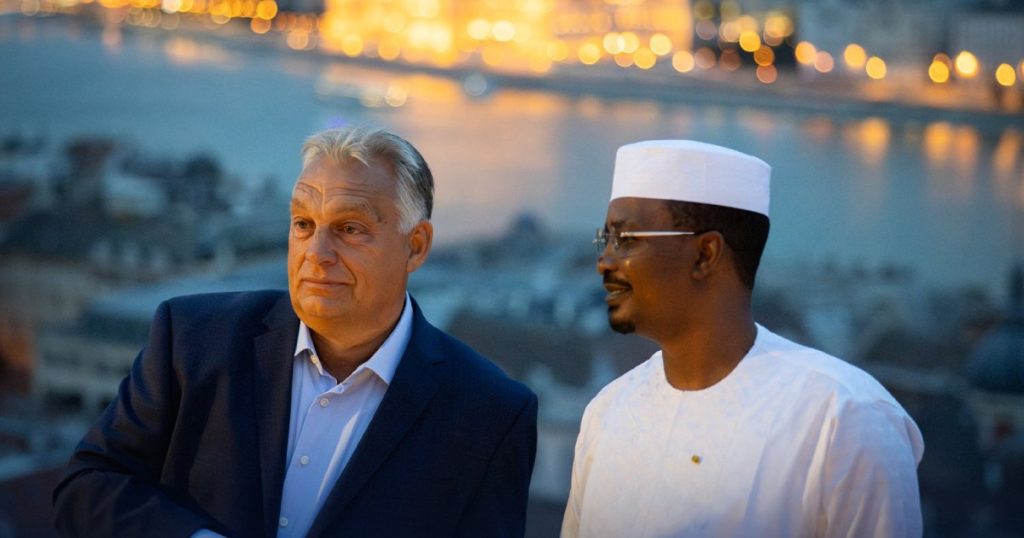In the scorching heat of N’Djamena, the presence of Hungarian diplomats speaking their language among the usual mix of Arabic and French signifies Chad’s new international partnership with Hungary. Despite Hungary’s status as one of Europe’s poorer countries with no economic holdings or communities in Chad, Prime Minister Viktor Orban has emphasized the importance of forming alliances with countries in the Sahel region to address migration issues fueled by armed groups and military regimes. In response to this, Hungary has opened a diplomatic mission, launched a humanitarian center, and pledged $200 million in aid to Chad.
The aid from Hungary aims to address development issues in Chad, such as poverty, inadequate healthcare, and education, to prevent people from seeking better opportunities in Europe. Chad, one of Africa’s poorest countries, is facing economic challenges exacerbated by disrupted trade with Sudan and hosting 1.2 million refugees from neighboring conflict-stricken countries. Hungary’s support is seen as a strategy to prevent destabilization in Chad, which could potentially lead to a surge in migration to Europe.
President Mahamat Idriss Deby Itno’s visit to Hungary solidified the terms of the humanitarian package, marking Hungary’s first aid treaty with an African nation. Hungary also announced plans to deploy 200 soldiers to Chad to train local forces against armed groups. However, the timeline for the deployment and the specific role of the Hungarian forces are yet to be determined, pending approval from the Chadian National Assembly. Furthermore, Hungary’s involvement in the transfer of funds to Chad through the European Peace Facility has raised questions and scrutiny from other EU members.
Hungary’s engagement with Chad aligns with Orban’s agenda of tighter controls on immigration to the EU. By forming partnerships with countries in the Sahel region, Hungary aims to address migration issues at the source. Some analysts suggest that Hungary’s involvement in Africa could also be a strategic move to gain influence and participate in the power dynamics on the continent, where major powers like Russia, China, and the US are vying for control. The engagement with Chad could potentially bolster Deby’s image at home and internationally, especially in light of internal political tensions in Chad.
Deby’s leadership in Chad has faced challenges since assuming power after his father’s death, leading to questions of legitimacy and internal divisions within the country. The military plays a significant role in Chad’s governance, and additional military assistance from Hungary could help Deby strengthen his position domestically and internationally. Amidst tensions between Western countries and Russia in the region, Chad has positioned itself as a neutral player, hosting both French and American troops. The delicate balance of power in Chad, coupled with regional security threats, underscores the complexity of Hungary’s involvement in the region and the potential implications for Chad’s internal dynamics and external relationships.













